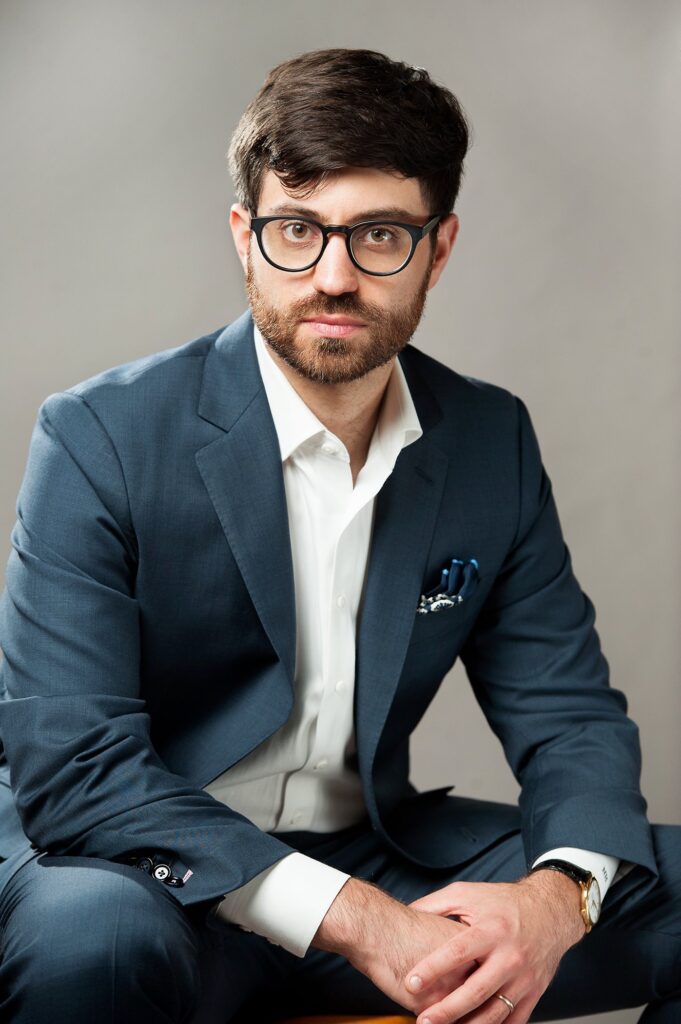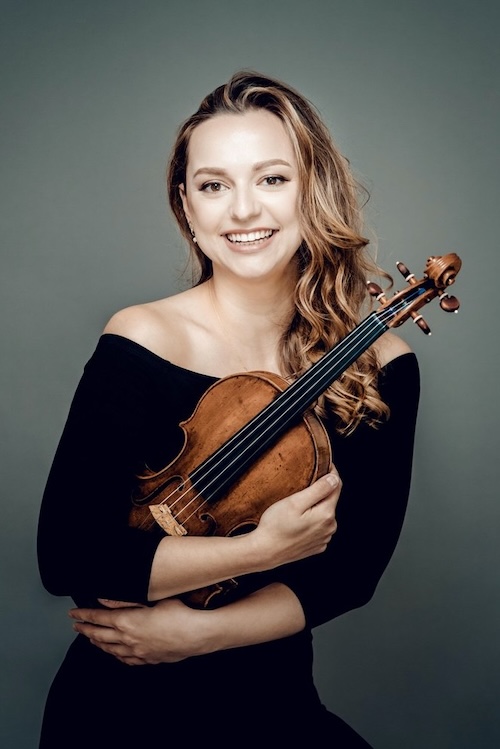Hersh and Ioudenitch make for rousing Apollo Orchestra opener

Nicholas Hersh conducted the Apollo Orchestra’s season opener Sunday in Silver Spring. Photo: Stephanie Noll
Nicholas Hersh served as the guest conductor for the Apollo Orchestra’s season opener Sunday afternoon at the Montgomery College Cultural Arts Center in Silver Spring.
Hersh, music director of the Modesto Symphony, is no stranger to local stages; National Symphony Orchestra enthusiasts may remember him successfully subbing for Yan-Pascal Tortelier a few years back, when he was serving as associate conductor for the Baltimore Symphony.
His return to the area was fruitful — a rousing concert that left principal conductor David Chan, who will lead the rest of the Apollo season, with a tough act to follow.
Before the concert, the conductor praised the “stark beauty” of Felix Mendelssohn’s Hebrides Overture (Fingal’s Cave), and the orchestra played the introductory motive, suggestive of lapping waves, with supple articulation that made the sea almost tangible. Hersh paced the mounting drama here so that one could feel a storm gradually brewing, with many delights along the way, like the cellos’ rich intonation of a heroic theme.
Born in Russia and raised in Kansas City, violinist Maria Ioudenitch has made something of a specialty of Samuel Barber’s Violin Concerto, which she played with the Apollo on Sunday. She wore a mask during her performance and coughed occasionally, but her playing sounded none the worse for wear.

Maria Ioudenitch performed Barber’s Violin Concerto with the Apollo Orchestra. Photo: Andrej Grilc
To begin his concerto, Barber asks the violinist to coax into flight a lyrical theme that, in a normal concerto, would be preceded by several pages of musical throat-clearing; Ioudenitch made it soar, with a glowing, burnished tone poised between warmth and sadness, perfectly suiting Barber’s mood. The skipping, folkish second theme sounded fetching in the Apollo winds, and later in Ioudenitch’s violin. Ioudenitch and Hersh ably navigated the first movement’s rhapsodic structure, with the music catching fire when needed to contrast its generally wistful tone.
The second movement opened with a haunting solo from oboist Noelle Drew that flickered between the major and minor modes; a subsequent solo from Ioudenitch quested for the major before an unexpected collapse into the minor, with her passionate tone underlining the drama. Ioudenitch and the orchestra built to a crashing climax before ending with a magnetic whisper from her violin.
Ioudenitch took the third movement, marked Presto in moto perpetuo, at an appropriately blistering pace, successfully giving the impression that she could careen out of control at any moment while remaining in no danger of doing so. Hersh and the orchestra kept up, and the result was four minutes of excitement to counterbalance the preceding ruminations.
More than any of his others, Ludwig van Beethoven’s Seventh Symphony needs strong, exuberant rhythms to reach its immense heights of expression, and Hersh and the Apollonians delivered. It started from the bottom — Hersh invited the audience to listen to the symphony’s “wonderfully inventive basslines,” and the orchestra’s lower strings rose to that challenge throughout.
Hersh led a spacious Poco sostenuto introduction to the first movement, followed by a vigorous Vivace. In the relatively small hall, the relatively small Apollo forces made a grand sound, especially in the blazing brass fanfares, but also highlighted delightful details of orchestration.
Even the mournful Allegretto second movement feels inexorable due to its steady rhythmic tread. After the low strings delivered a memorably hushed and throaty rendition of the theme, Hersh carefully built up its variations to achieve maximum dramatic impact, supported by passionate playing from the orchestra. The main theme of the following Scherzo sprang forward with infectious triple-meter energy, and the repetitions of the slower Trio section felt like oases, albeit leavened with Beethoven’s sly wit; the Apollo winds sounded particularly lively here.
Listening to Hersh and the Apollonians play the Allegro con brio finale felt like being in the passenger seat of a race car in which the driver has just floored it. The sheer press of the music, the whirring of the violins and the strong shelf of low harmony in the basses, the joyful explosions of the brass, and the thump of Don Johns’ timpani combined for a truly exhilarating experience, all held together by Hersh’s energetic direction.
The Apollo Orchestra performs Shostakovich’s Ninth Symphony, as well as Dvorák’s Cello Concerto with soloist Hai-Ye Ni November 17. www.apolloorchestra.com
